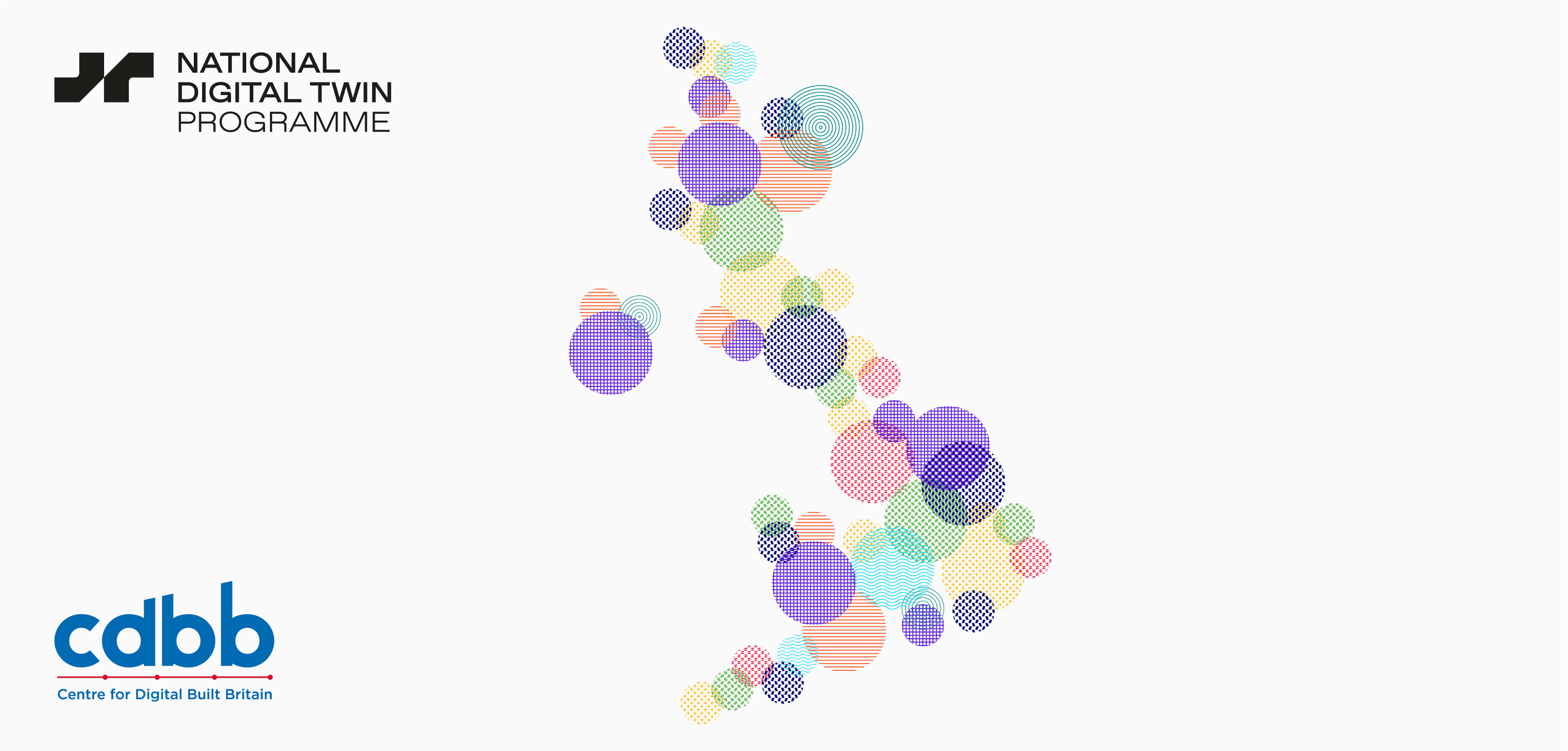
The National Digital Twin programme (NDTp) was run by the Centre for Digital Built Britain, a partnership between the University of Cambridge and the Department for Business, Energy and Industrial Strategy. Launched by HM Treasury in July 2018, the NDTp was set up to deliver key recommendations of the National Infrastructure Commission’s 2017 'Data for the Public Good Report'.
High-quality, secure data can improve how infrastructure is built, managed, operated and eventually decommissioned. It is therefore crucial that this data is captured and used effectively to bring forward savings for stakeholders and ensure societal benefits for all. This focus is reflected in the NDTp’s objectives:
- Enable a National Digital Twin – an ecosystem of connected digital twins to foster better outcomes from our built environment;
- Deliver an Information Management Framework – to ensure secure resilient data sharing and effective information management;
- Align a Digital Framework Task Group – to provide coordination and alignment among key players.
The NDTp has set up the Digital Framework Task Group (DFTG) as an advisory group. The DFTG was made up of senior leaders within industry, academia and Government and was chaired by Mark Enzer, Chief Technical Officer of Mott MacDonald. The DFTG formerly reported to HM Government through the CDBB’s Strategic Advisory Board.
CDBB’s NDTp was a key step in the digital transformation of the infrastructure and construction sectors. Supported by Government, we united the collective knowledge of construction professionals and diverse voices of experts to set the framework that empowers others to advance change and embrace connected digital twins within their own organisations. The NDTp runs the Digital Twin Hub, a collaborative and supportive web-enabled community for those who own, or who are developing digital twins within the built environment.
The NDTp is working with future users and early adopters of digital twins to develop an information management framework to connect digital twins to deliver benefits to all. The creation of the framework forms an integral part of HM Government’s modern Industrial Strategy and Construction Sector Deal.
Benefits of the National Digital Twin
The National Digital Twin offers better outcomes for all stakeholders per whole-life pound spent in the built environment:
- Benefits to society: Transparent stakeholder engagement. Better outcomes for the ultimate customers - the public – taxpayers/bill payers/fare payers/voters. Improved customer satisfaction and experience through higher-performing infrastructure and the services it provides.
- Benefits to the economy: Increased national productivity from higher-performing and resilient infrastructure operating as a system. Improved measurement of outcomes. Better outcomes per whole-life pound. Enhanced information security and thereby personnel, physical and cyber security.
- Benefits to business: New markets, new services, new business models, new entrants. Improved business efficiency from higher-performing infrastructure. Optimised delivery efficiency, benefiting the whole construction value chain – investors, owners, asset managers, contractors, consultants, and suppliers. Reduced uncertainty and better risk management.
- Benefits to the environment: Less disruption and waste. More reuse and greater resource efficiency – a key enabler of the circular economy in the built environment.
Key milestones
Initial activity focused on aligning industry and government behind a common definition and approach to information management, so that data can be shared openly and securely between future digital twins. This included:
-
Gemini Principles (2018), a paper setting out the proposed principles to guide the national digital twin and the information management framework that will enable it;
-
DFTG roadmap (2018), a prioritised plan for five core streams responsible for the delivery of the information management framework;
-
Digital Twin Hub launch (2019), a web-enabled community for early adopters of digital twins to learn through sharing and progress by doing;
-
Flourishing Systems (2020), a paper advocating a shift in vision for infrastructure that is people-focused and system-based.
-
Pathway towards an IMF (2020), a technical paper and a summary paper on the proposed technical core for the information management framework.
-
Gemini Programme (2020), this programme enabled the development of resources for the DT Hub community to expand the reach of the Information Management Framework and the NDTp. The Gemini programme brought together people and organisations who volunteered their time and resources to develop materials for use by the DT Hub community. Read about the projects here.
Key milestones on the NDTp are accessible on the interactive National Digital Twin timeline. Learn more about CDBB’s National Digital Twin Programme here.
Video Explainers:
CONTACT:
For more information, please visit the DT Hub website here
